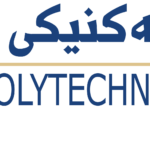Application of science and modern science in specialized areas.
Demonstrate effective communication and writing skills.
Motivation of the concepts of self-education and self-training.
Acquire the skills to lead relevant work and build productive leaders.
Ability to use logical and critical thinking.
Ability to analyze and synthesize ideas.
Ability to manage conflict and crises.
Ability to formulate, develop and implement strategic, operational and tactical action plans.
Develop scientific research, creativity and innovation skills.
Use various ICT tools.
Provide students with leadership skills, building effective and efficient teams.
Recognition of ethical and professional principles.
Vision
Change and being creative is our destination as well as experiential techniques of business education.
“Inspired by industry. Motivated by student success.”
goals
Our goals are formed from the values of our department
Student: Our highest priority center is the future success of our students.
Excellence: We are committed to providing courses that go above and beyond.
Innovation: Our collaboration with business management means that we are always creating new ways to teach relevant skills to students.
Respect: We believe diversity is a source of strength, and we protect the rights and dignity of our students and staff.
Educating Students: We promote students’ intellectual and professional development by emphasizing communication, critical and analytical thinking, collaboration, knowledge management and broad exposure to key business management disciplines.
Cultural Competency: We maintain and develop current and responsive curriculum that prepares students for the global business management environment through broad exposure to key business management disciplines.
Physical Learning Environment: We strive to provide physical infrastructure with appropriate technology that provides an environment where our students and faculty can grow professionally and intellectually.
community
Collegial: We encourage transparency in our decision-making practice through a shared governance process based on interactions between faculty, staff and students.
Service: We seek collaborative partnerships among our internal and external stakeholders to influence and promote lifelong and experiential learning, research, service, and community engagement.
Diversity: We value the opportunity to work, learn, and grow in a community that embraces a diversity of individuals and ideas.
integrity:
Ethics: We are committed to ethical and responsible behavior in our own actions and to developing the same commitment in our students by promoting an awareness of professional ethical responsibilities.
Accountability: We are committed to responsibility and accountability for our actions at all levels, including continuous evaluation and improvement of our academic programs and transparency in our financial and administrative measures.
Mission
Prepare students for successful business management-related careers in organizations by fostering intellectual and personal growth, developing specific management skill sets relevant to the global business community and designing and delivering innovative, career-centered programs. We work tirelessly to provide students with the right blend of academic excellence and practical hands-on experience, nurturing ambitious individuals to further their careers. how do we do it.
In running an EPU business, the way we do things is just as important as what we do. We provide an inspiring, creative and positive environment for our students, and all our tutors have extensive practical experience to share.
[/wptm_table_shortcode][wptm_table_shortcode wptm_table_random=”0.2817074416883789″ wptm_selected_table_id=”288″ wptm_table_title=”B2″]
[/wptm_table_shortcode][wptm_table_shortcode wptm_table_random=”0.20715749756427937″ wptm_selected_table_id=”291″ wptm_table_title=”B3″]
[/wptm_table_shortcode][wptm_table_shortcode wptm_table_random=”0.6914669736906907″ wptm_selected_table_id=”294″ wptm_table_title=”B4″]
[/wptm_table_shortcode][wptm_table_shortcode wptm_table_random=”0.9315414589675848″ wptm_selected_table_id=”295″ wptm_table_title=”B5″]
[/wptm_table_shortcode][wptm_table_shortcode wptm_table_random=”0.14357109687010494″ wptm_selected_table_id=”296″ wptm_table_title=”B6″]
[/wptm_table_shortcode][wptm_table_shortcode wptm_table_random=”0.6052047173729664″ wptm_selected_table_id=”297″ wptm_table_title=”B7″]
[/wptm_table_shortcode][wptm_table_shortcode wptm_table_random=”0.17118083160186193″ wptm_selected_table_id=”298″ wptm_table_title=”B8″]
[/wptm_table_shortcode]

Assistant Lecture

Lecturer

Assistant Lecturer

Assistant Lecturer

Assistant Lecturer

Assistant professor

Assistant Lecturer

Assistant Lecturer

Assistant Lecturer
College contact information
- 120 Meter St, Erbil
- management,etac@epu.edu.iq
- 07503467229
- http://www.epu.edu.iq







